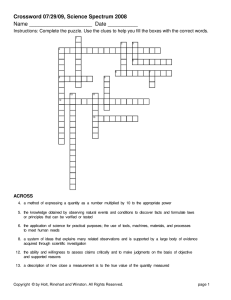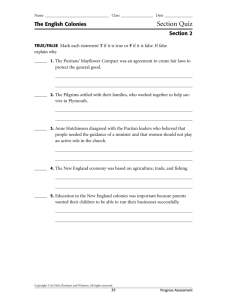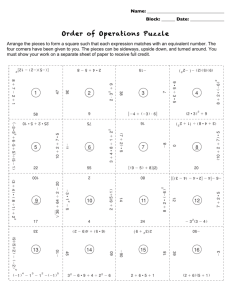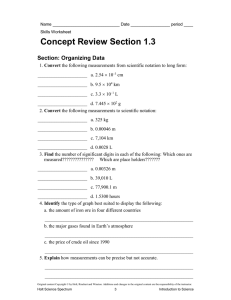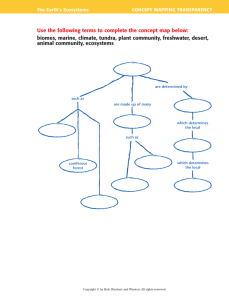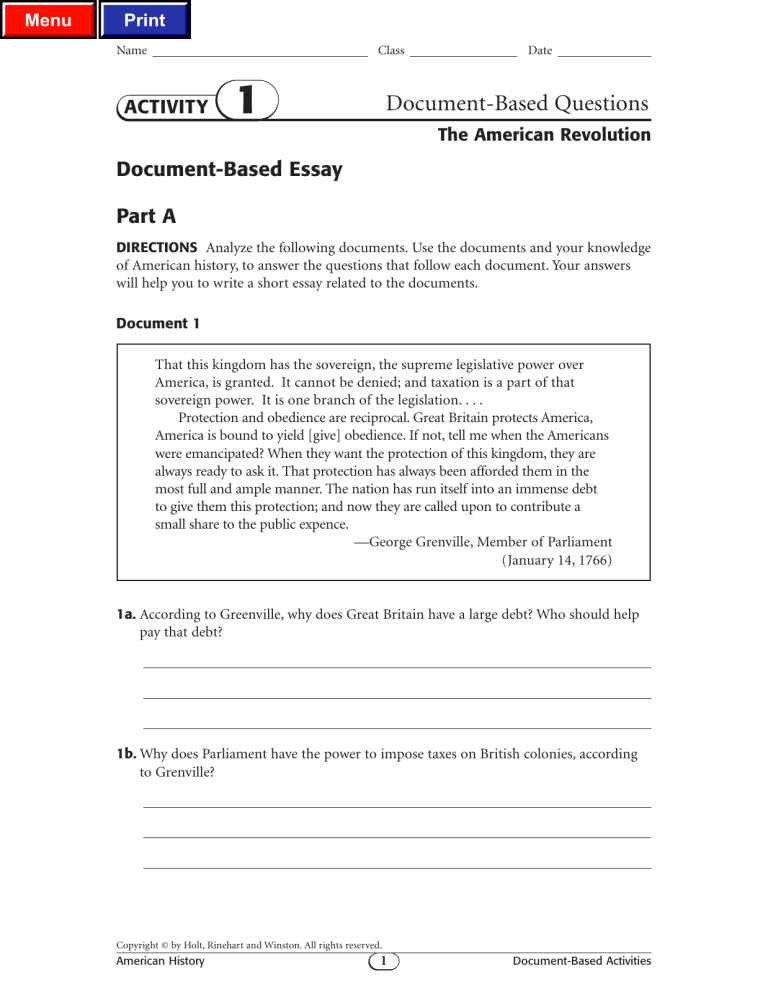
Menu
Print
Name
Class
ACTIVITY
1
Date
Document-Based Questions
The American Revolution
Document-Based Essay
Part A
DIRECTIONS Analyze the following documents. Use the documents and your knowledge
of American history, to answer the questions that follow each document. Your answers
will help you to write a short essay related to the documents.
Document 1
That this kingdom has the sovereign, the supreme legislative power over
America, is granted. It cannot be denied; and taxation is a part of that
sovereign power. It is one branch of the legislation. . . .
Protection and obedience are reciprocal. Great Britain protects America,
America is bound to yield [give] obedience. If not, tell me when the Americans
were emancipated? When they want the protection of this kingdom, they are
always ready to ask it. That protection has always been afforded them in the
most full and ample manner. The nation has run itself into an immense debt
to give them this protection; and now they are called upon to contribute a
small share to the public expence.
—George Grenville, Member of Parliament
(January 14, 1766)
1a. According to Greenville, why does Great Britain have a large debt? Who should help
pay that debt?
1b. Why does Parliament have the power to impose taxes on British colonies, according
to Grenville?
Copyright © by Holt, Rinehart and Winston. All rights reserved.
American History
1
Document-Based Activities
Menu
Print
Name
Class
Date
Activity 1, The American Revolution, continued
Document 2
IMPORTS FROM BRITAIN, 1764–1776
4.5
Value of
British
imports
(in millions
of pounds
sterling*)
4.0
3.5
Intolerable
Acts 1774
Sugar Act
1764
3.0
2.5
2.0
1.5
1.0
Townshend Acts (except
for tea tax) repealed 1770
.5
1766
*British currency
1768
1770
Year
1772
1774
1776
Source: Historical Statistics of the United States
Charles Apple
0 1764
2a. Why did imports from Great Britain to the colonies decline?
2b. When did the greatest drop in British imports occur, and why?
Copyright © by Holt, Rinehart and Winston. All rights reserved.
American History
2
Document-Based Activities
Menu
Print
Name
Class
Date
Activity 1, The American Revolution, continued
Document 3
If I was in any doubt, as to the right which the Parliament of Great Britain
had to tax us without our consent, I should most heartily coincide with you
in opinion, that to petition, and petition only, is the proper method to apply
for relief; because we should then be asking a favor, and not claiming a right,
which, by the law of nature and our constitution, we are, in my opinion,
indubitably entitled to. I should even think it criminal to go farther than
this, under such an idea; but none such I have. I think the Parliament of
Great Britain hath no more right to put their hands into my pockets, without my consent, than I have to put my hands into yours for money; and this
being already urged to them in a firm, but decent manner, by all the
colonies, what reason is there to expect any thing from their justice?
—George Washington, letter to Bryan Fairfax (July 20, 1774)
3a. Why does Washington believe that just asking the British government to reduce taxes
is the wrong course of action?
3b. According to Washington, what is necessary for Parliament to pass taxes on the
colonists?
Copyright © by Holt, Rinehart and Winston. All rights reserved.
American History
3
Document-Based Activities
Menu
Print
Name
Class
Date
Activity 1, The American Revolution, continued
Document 4
The mother country always considers the colonies . . . as parts of itself; the
prosperity or unhappiness of either is the prosperity or unhappiness of
both. . . .
Our colonies . . . have been hitherto treated as constituent parts of the
British Empire. The inhabitants, incorporated by English Charters, are
entitled to all the rights of Englishmen. They are governed by English laws,
entitled to English dignities, regulated by English counsels, and protected by
English arms, and it seems to follow by consequence not easily avoided, that
they are subject to English government and chargeable by English taxation.
—Dr. Samuel Johnson (1775)
4a. What is the relationship between England and the colonies, according to Dr. Johnson?
4b. Why does Dr. Johnson believe the colonists ought to pay the taxes imposed on them?
Copyright © by Holt, Rinehart and Winston. All rights reserved.
American History
4
Document-Based Activities
Menu
Print
Name
Class
Date
Activity 1, The American Revolution, continued
Document 5
The resolutions of Parliament breathed a spirit of moderation and forbearance; conciliatory propositions accompanied the measures taken to enforce
authority, and the coercive acts were adapted to case of criminal combinations among subjects not then in arms. I have acted with the same temper
(spirit), anxious to prevent . . . the effusion [shedding] of the blood of my
subjects, and the calamities which are inseparable from a state of war; still
hoping that my people in America would have discerned the traitorous
views of their leaders, and have been convinced, that to be a subject of Great
Britain, with all its consequences, is to be the freest member of any civil
society in the known world.
—King George III (October 26, 1775)
5a. Who does the king blame for the disorder in his North American colonies?
5b. What is King George’s view of the British government and British society?
Copyright © by Holt, Rinehart and Winston. All rights reserved.
American History
5
Document-Based Activities
Menu
Print
Name
Class
Date
Activity 1, The American Revolution, continued
Document 6
This recruiting poster was used to recruit soldiers for the Continental Army under the
command of General George Washington. For many of those soldiers, this was their first
opportunity to meet people from other colonies that were now part of the United States.
Library of Congress
6a. According to the above recruiting poster, why should people sign up to join General
Washington’s army?
6b. What rewards does the poster promise to those who enlist?
Copyright © by Holt, Rinehart and Winston. All rights reserved.
American History
6
Document-Based Activities
Menu
Print
Name
Class
Date
Activity 1, The American Revolution, continued
Document 7
These are the times that try men’s souls. The summer soldier and the sunshine patriot will, in this crisis, shrink from the service of his country, but
he that stands it now, deserves the love and thanks of man and woman.
Tyranny, like hell, is not easily conquered; yet we have this consolation with
us, that the harder the conflict, the more glorious the triumph. What we
obtain too cheap we esteem too lightly; it is dearness only that gives everything its value. Heaven knows how to put a proper price on its goods; and it
would be strange indeed if so celestial (heavenly) an article as FREEDOM
should not be highly rated. Britain, with an army to enforce her tyranny, has
declared that she has a right (not only to TAX) but ‘to BIND us in ALL
CASES WHATSOEVER (complete political control); and if being bound in
that manner is not slavery, then there is not such a thing as slavery upon
earth.
—Thomas Paine, “The Crisis” (1775)
7a. Does Paine provide any evidence to prove England is tyrannical? If so, what?
7b. What does Paine mean by the phrases “sunshine patriot” and “summer soldier”?
Copyright © by Holt, Rinehart and Winston. All rights reserved.
American History
7
Document-Based Activities
Menu
Print
Name
Class
Date
Activity 1, The American Revolution, continued
Document 8
The moderation and virtue of a single character has probably prevented this
revolution from being closed as most others have been by a subversion of
the liberty it was intended to establish.
—Thomas Jefferson describing Washington’s resignation
as commander in chief of the Continental Army
8a. To whom is Jefferson referring to in the above quotation?
8b. Why does Jefferson praise his subject?
Copyright © by Holt, Rinehart and Winston. All rights reserved.
American History
8
Document-Based Activities
Menu
Print
Name
Class
Date
Activity 1, The American Revolution, continued
Document-Based Essay
Part B
DIRECTIONS Using the information in the documents provided, and your knowledge of
history, write a well-organized essay that includes an introduction, a body of several
paragraphs, and a conclusion.
HISTORICAL CONTEXT
Between 1763 and 1775 the relationship between Great Britain and its colonies in North
America grew increasingly tense. Ultimately, the colonies would declare their independence and fight a war to become the United States.
TASK
Using information in the documents and your knowledge of U.S. history,
write an essay in which you:
Describe how the differing points of view held by the British government
and many American colonists contributed to their political disagreements.
In your essay, include a discussion of how the American colonists responded
to actions taken by the British government, the reasons Great Britain pursued its policies despite American opposition, and what brought many
Americans to begin to push for independence from Britain.
GUIDELINES
Be sure to:
• Address all aspects of the Task by accurately analyzing and interpreting at least four of
the documents.
• Use information provided in the documents in the body of your essay.
• Incorporate relevant outside information throughout the essay.
• Support your arguments with facts and information that address the theme.
• Be sure to organize your essay in a clear and logical way.
• Establish a framework that is beyond a simple restatement of the Task or Historical
Context, and conclude the essay with a summation of the theme.
Copyright © by Holt, Rinehart and Winston. All rights reserved.
American History
9
Document-Based Activities

